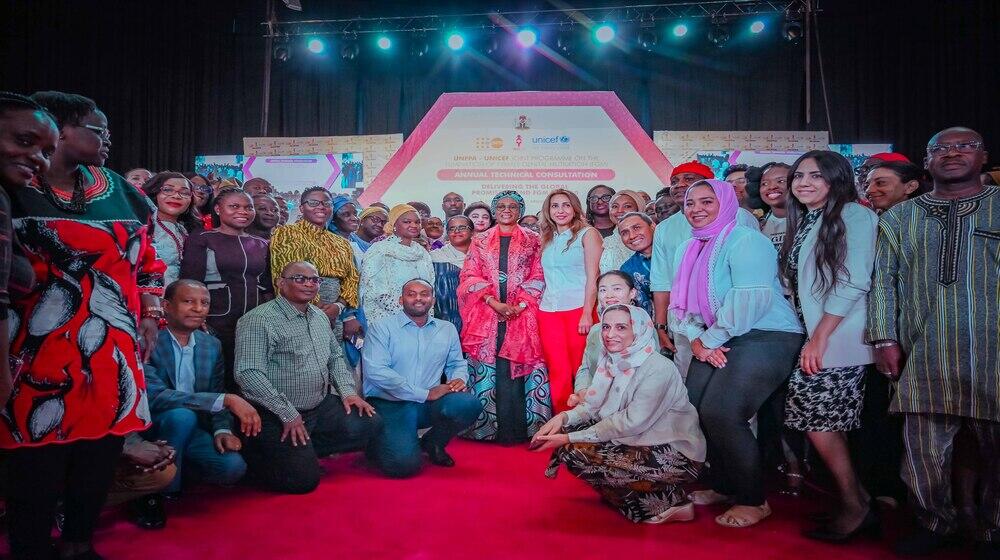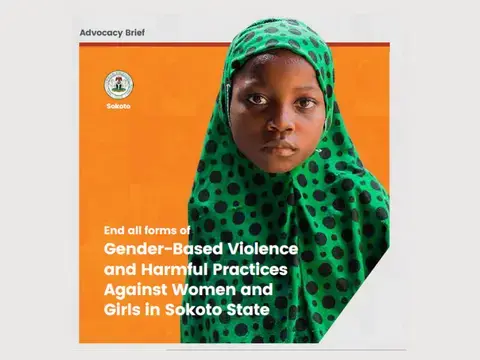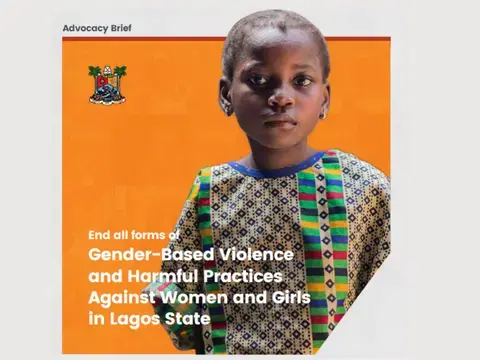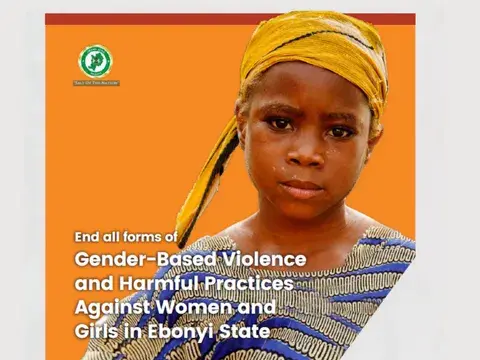The UNFPA-UNICEF Joint Programme on the Elimination of Female Genital Mutilation (FGM) concluded its Annual Technical Consultation Meeting on June 13, themed "Delivering the Global Promise to End FGM by 2030." United Nations partners have emphasized the urgent need to end Female Genital Mutilation by 2030 through concerted efforts and the promotion of movements at national, regional, and global levels.
During the opening session, the First Lady of Nigeria, Senator Oluremi Tinubu, pledged her commitment to support efforts to end FGM in Nigeria. She called on stakeholders to use their platforms to eradicate this harmful practice by creating transformative movements that prevent FGM and empower survivors through comprehensive legal and psychosocial services aimed at restoring the dignity of victims.
Female Genital Mutilation is internationally recognized as a violation of the rights of women and girls. Nigeria accounts for almost one in ten of the 230 million FGM survivors globally and 22% of the 68 million girls at risk of FGM between 2015 and 2030. Despite recent data indicating a decline in national prevalence from 25% to 20% among women, there is a need to double efforts to achieve sustained progress towards the elimination of FGM in Nigeria.
The event had global experts, government officials, and representatives from 17 countries converge to share lessons learned, strategize, and strengthen collaborative efforts to end FGM by 2030. With a focus on "Local Solutions to Ending FGM," the consultation underscored the critical role of women-led organizations in driving change. Participants engaged in discussions on evidence-based programming, capacity building, and enhancing joint efforts between UNFPA and UNICEF at all levels.
"Ending FGM by 2030 is an ambitious yet achievable goal. It requires the dedication and collaboration of all stakeholders at every level. The commitment shown here in Nigeria, especially by the First Lady, is a powerful testament to what can be achieved when we unite for the rights and dignity of women and girls." Said Cristian Munduate, UNICEF Representative in Nigeria.
To accelerate action towards ending FGM by 2030, UNFPA Nigeria urged a unified and coordinated approach among all stakeholders. Strengthened alliances, and increased advocacy, would accelerate action towards eliminating Female Genital Mutilation at a national scale before the global deadline.
“We must continue to raise awareness at all levels of society about the harm of FGM and the important of gender equality and human rights. By maintaining our commitments and working collaboratively, we can make significant strides toward the complete elimination of FGM in Nigeria by 2030, added the UNFPA Nigeria Representative.
The consultation provided a platform for Nigeria to share its experiences and achievements in addressing FGM and to engage in discussions with international experts and stakeholders. The event was also graced with dignitaries such as H.E The Vice President of the Federal Republic of Nigeria, Kashima Shetima, the Honourable Coordinating Minister of Health, Muhammad Ali Pate, His Royal Highness Dr. Haliru Yahaya, Emir of Shonga, celebrities and influential people including UNICEF Champion Kate Henshaw. Ministers and government representatives from Burkina Faso, Chad, Djibouti, Egypt, Eritrea, Ethiopia, Gambia, Guinea, Guinea Bissau, Indonesia, Kenya, Liberia, Malaysia, Mali, Mauritania, Niger, Nigeria, Senegal, Sierra Leone, Somalia, Sudan, Tanzania, Uganda and Yemen also attended and contributed to the discussions.
About the UNFPA-UNICEF Joint Programme on elimination of FGM
Since 2014, the United Nations Population Fund (UNFPA) and the United Nations Children’s Fund (UNICEF), in partnership with the Federal Ministries of Women Affairs and Health, have been leading the largest global programme on eliminating Female Genital Mutilation (UNFPA-UNICEF Joint Programme on the Elimination of Female Genital Mutilation:
In line with Delivering the Global Promise, in Nigeria as well as globally, the Joint Programme supports the development of enabling policies and legal frameworks, access to essential services, girls' and women’s empowerment, and community-led social and gender norms change by working in partnership with governments, civil society, development partners, and communities.
UNFPA is the United Nations Sexual and Reproductive agency delivering a world where every pregnancy is wanted, every childbirth is safe and every young person's potential is fulfilled. Follow UNFPA Nigeria on Facebook, Instagram, Twitter and Youtube
UNICEF works in some of the world’s toughest places, to reach the world’s most disadvantaged children. Across more than 190 countries and territories, we work for every child, everywhere, to build a better world for everyone. For more information about UNICEF and its work for children, visit www.unicef.org/nigeria
Follow UNICEF Nigeria on Twitter, Facebook, Instagram and YouTube.
For more information, please contact:
Ijeoma Onuoha-Ogwe, UNICEF Nigeria, ionuohaogwe@unicef.org and Adewole Ajao, UNFPA Nigeria, +234 901 555 1296, ajao@unfpa.org





